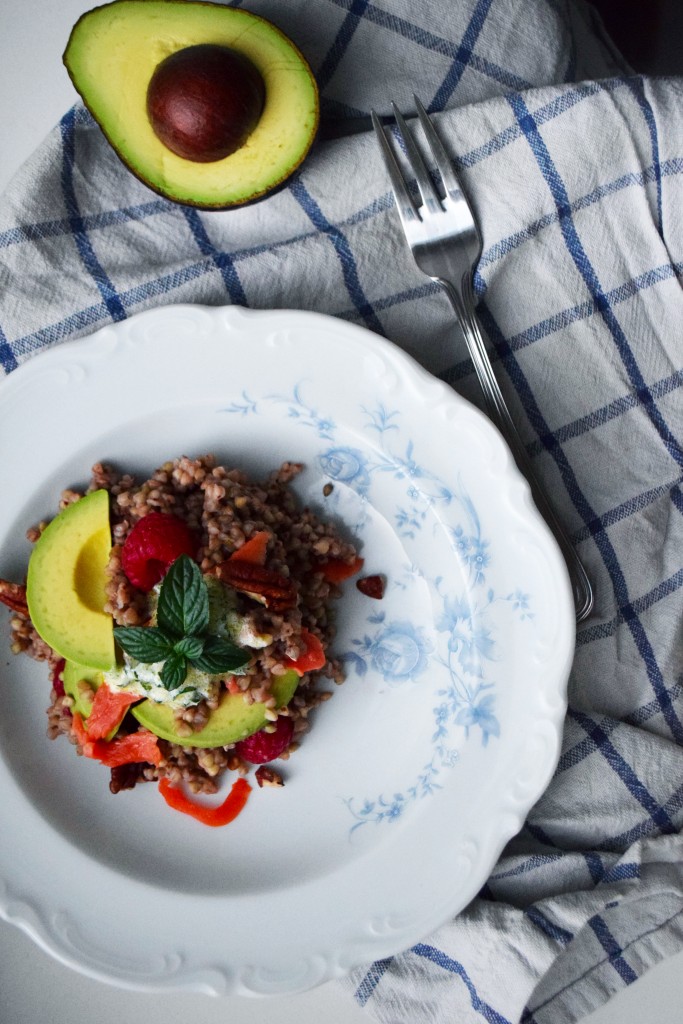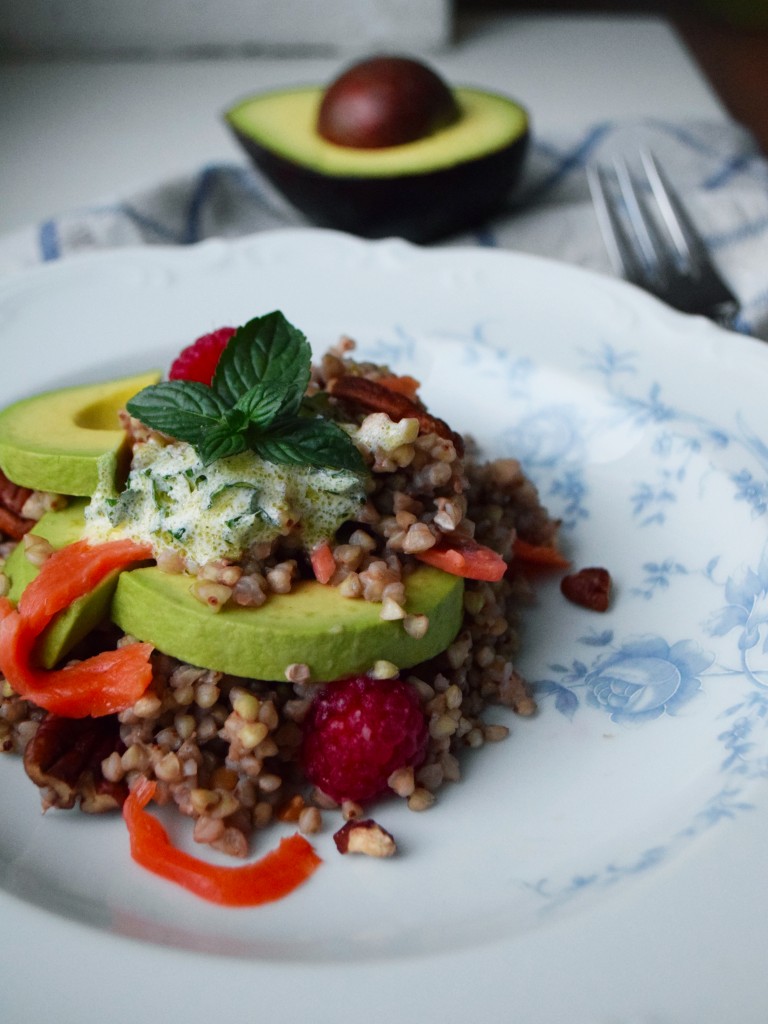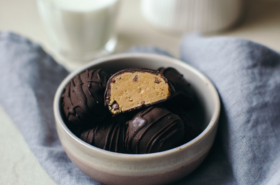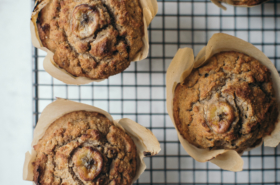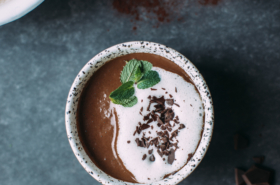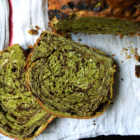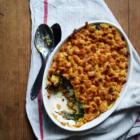Since I started to cook with buckwheat, I took the habit to eat it under every way, including before my races and trainings. This seed, still not such well-known a few years ago, -okay, almost everybody knows the Brittanic galettes made with buckwheat flour, but still- is quickly gaining addicts and most of all sporty people and runners. Why? This seed is literally a little bomb of energy and great apports! Since a while, I came back regularly on the running tracks and my next big challenge will be the Berlin marathon in September – which will also be my very first one -. Being back to intensive sport life also means that I will have to take again the habit to eat healthier and very balanced, but also reduce my consumption of fast and industrial sugar, in order to be in shape for all my trainings – because let´s be honest, having a blog and creating new recipes contributes more to take care of your fatty buoy than your abs, even when you have all the roommates and friends to eat your cakes-. Also I had the idea to publish a post more focused on running. The 5 following carbs are totally gluten free, which in addition of their important nutritive apports, make the digestion a way much easier.
1. Buckwheat
Thanks to the absence of gluten in it, buckwheat is first very easy to digest, in addition to be poor in calories and very energetic: this is one of the most complete sources of proteins (±12%). The seed is also rich of vitamins and minerals (as magnesium, potassium, copper, calcium, iron or phosphor), but also of rutine, which is a bioflavonoid very important for runners; this component helps the blood circulation, which permits to decrease the “heavy legs” sensation.
2. Millet
In addition to its proteins, millet is full of magnesium, potassium and iron – intensive running is contributing to the decrease of iron rate in blood -. We can also find in it some phosphor, manganese and lots of vitamins. This cereal contributes globally to reduce cholesterol rate, in the protection of bones, to the health of the digestive system and the reinforcement of natural defenses.
3. Quinoa
Full of carbs and proteins, quinoa is tasty and easy to cook. The seed has also plenty amino acids and is, as its peers, offering a wealth of magnesium – which is good for endurance -, copper, manganese and potassium. Eating regularly quinoa will help you to reinforce your organism and fight against tiredness.
Check out my recipe of Quinoa salad with baby spinach, pomegranate, feta cheese & grapes.
4. Wholegrain rice
Another ideal carb to anticipate long-distance races, thanks to its high rate of magnesium, potassium and selenium. It’s also full of vitamins B and E. Moreover, wholegrain rice is way more digest and nourishing than white rice, which makes it a perfect food for runners.
5. Coral lentils
They are super rich in vegetal proteins (±24%) and have a low glycemic index, while helping to stay full. Important sources of iron, magnesium, phosphor and potassium, they are also easily digestible thanks to their high rate in fibers.
(for 2 servings)
◆ 140g buckwheat ◆ 2 wild smoked salmon slices ◆ 1 avocado ◆ 15 raspberries ◆ 10 roasted pecan nuts ◆ 1/2 lemon ◆ 1 greek yogurt (±80g) ◆ 1tbsp olive oil ◆ a few leaves of wild mint◆ one knob of butter.
1. In a pan, brown buckwheat on the knob of butter. Make boil the buckwheat in some slightly salted water (the double of quantity of buckwheat) for a few minutes, then decrease the fire and let cook for 20-25 minutes.
2. Cut the smoked salmon and avocado in slices, then wash and mince the wild mint. Roast in a frying pan the pecan nuts and wash raspberries.
3. Prepare the sauce: stir the greek yogurt, olive oil, minced mint together, then add the lemon juice. When the buckwheat is ready and absorbed all the water, let it get tepid or cold depending your preferences, then add the other ingredients and stir well. Pour some sauce on the top and savor it.

